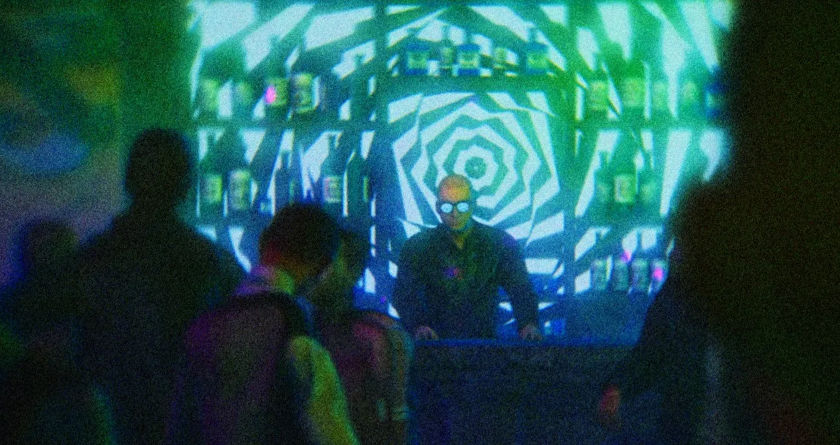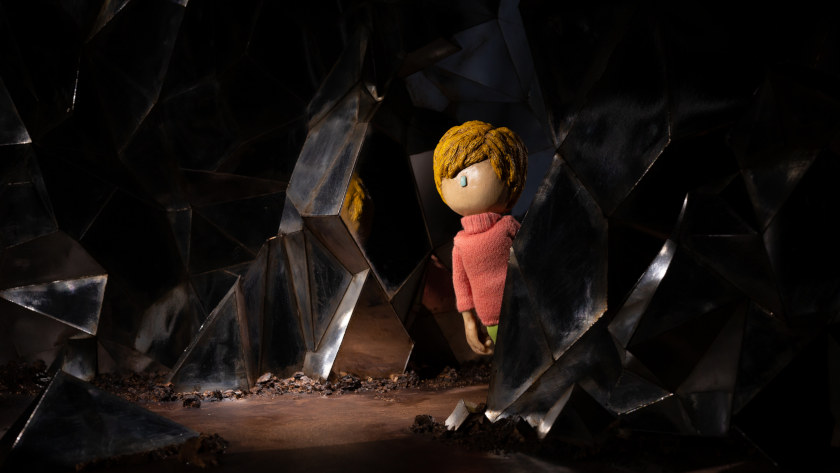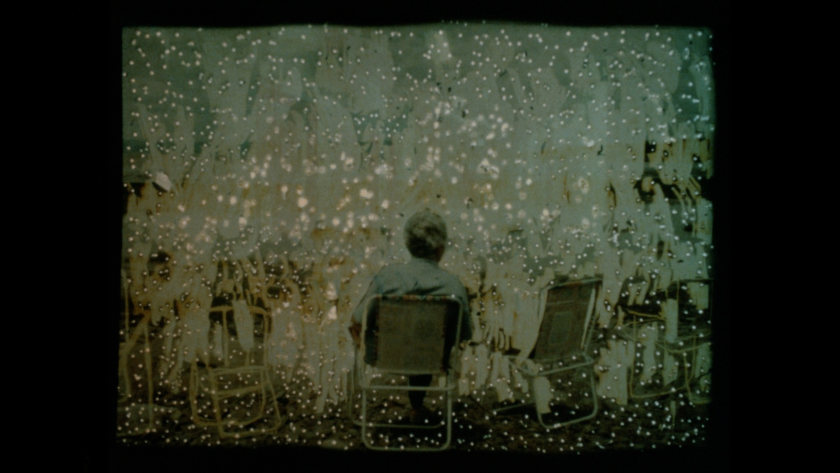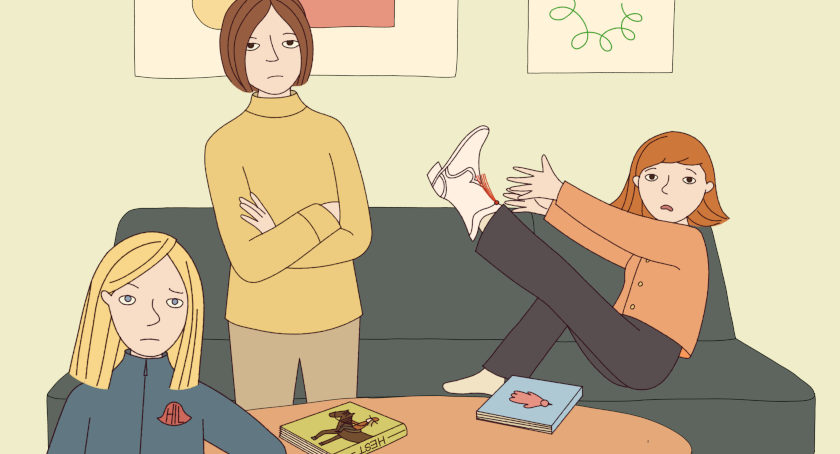Ville Neuve Review: Like A Fish Out of Water
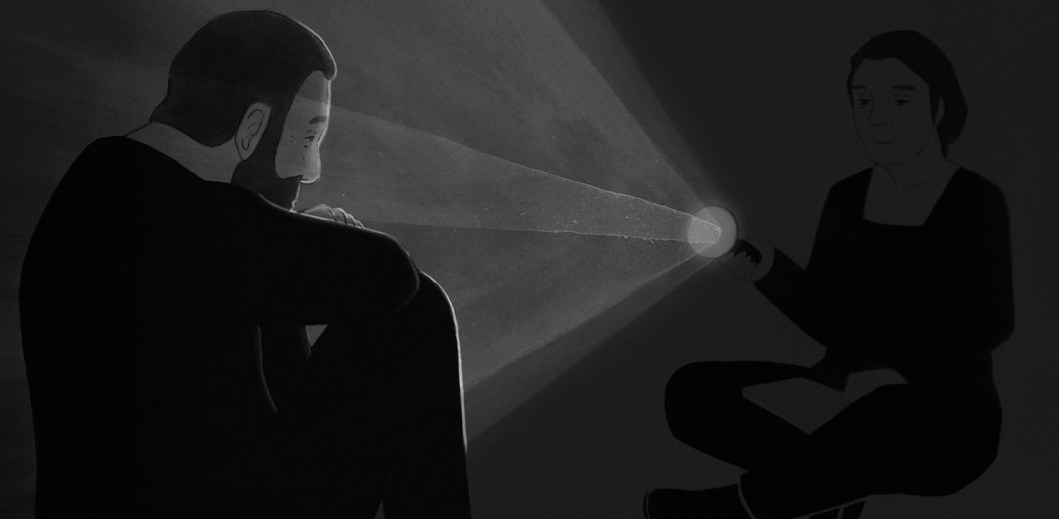
How can you recast a broken bell? Félix Dufour-Laperrière's sober, poetic and emphatic study of broken relationships in the midst of political upheaval is an intimate animated exercise on the fragile and the grand - with a clear eye on the way its aesthetic preferences go.
Taking as its source the short story of Raymond Carver Chef's House (1981), Dufour-Laperrière's film transfer the US surroundings to Quebec and the period of its second, failed referendum for independence. Joseph (Robert Lalonde) lives by himself in a rented place apart from his wife Emma (Johanne-Marie Tremblay) and his estranged son, Ulysses (Théodore Pellerin).
Politics between a divided community (the 1995 Quebec independence referendum was rejected by only 1% margin) and an early fight scene give their place to more mournful and solitary scenes for Joseph. A bearded, weary hero, he is always reflected in his own dissolving/absorbing background, a fitting aesthetic choice to simultaneously record both characters and their environment. Joseph is about to call his wife Emma to come to live together again, and 'try again'. Emma reluctantly decides to join him, while Ulysses seems to follow his own way.
In an animated feature which handles nuances of feelings rather than grand topics, the hand-drawn character (ink on paper) that Felix Dufour-Laperrière chooses to embroider his film with is more than welcome. Characters and scenes look like breathtaking images of a fish out of water (a recurrent symbol in the film); narration of the short story authored by Emma to her husband at night in the open-air stands out as one of the most fine examples of image and sound manipulation in the whole film.
Joseph as the main character is not so successfully portrayed; his ranting about unhappiness, fight and the unwillingness to really try make him more an unwelcome miser than an affectionate loner. The relationship between Emma and Ulysses is stronger, and, in many aspect, Ulysses is the main hero here -the one who is set, like the young character in Andrei Tarkovsky's Andrei Rublev (1966) to recast the broken bell of their relationship. In many aspects, his story is the most interesting of the three, and devoid of well-meant emotionally but ultimately colourless dialogue lines.
Faceless crowds, homes on fire are just the side effects of a relationship on hold here; Sound design (Olivier Calvert, Samuel Gagnon-Thibodeau) reveal exactly how a traumatized character should proceed in life: step-by-step, besides creaking doors and stairs, but also facing sea waves and wind, being accompanied by an affectively numb musical score (Gabriel Dufour-Laperrière).
Ville Neuve is a sensitive film which uses its low-key aesthetics in its favour; it sometimes overexposes a fait accompli desperation, which hinders the film's own stated, palpable claim for a breath of fresh air. A comforting film to watch, Ville Neuve won't pretend that easy fixes can be found for broken hearts and national identities.
Vassilis Kroustallis
Credits
Producer : UNITÉ CENTRALE, Galilé MARION-GAUVIN
Distribution : URBAN DISTRIBUTION, Frédéric CORVEZ
Director-Script : Félix DUFOUR-LAPERRIÈRE
Script : Félix Dufour-Laperrière
Storyboard : Félix Dufour-Laperrière
Animation : Hyun Jin Park, Jens Hahn, Phil Lockerby, Malcolm Sutherland, Nicolas Brault, Félix Dufour-Laperrière
Camera : Bogdan Anifrani
Music : Gabriel Dufour-Laperrière
Sound : Olivier Calvert, Samuel Gagnon-Thibodeau
Editing : Félix Dufour-Laperrière,
Voice : Robert Lalonde, Johanne-Marie Tremblay, Théodore Pellerin, Gildor Roy, Paul Ahmarani
Artistic direction : Félix Dufour-Laperrière, Félix Dufour-Laperrière




